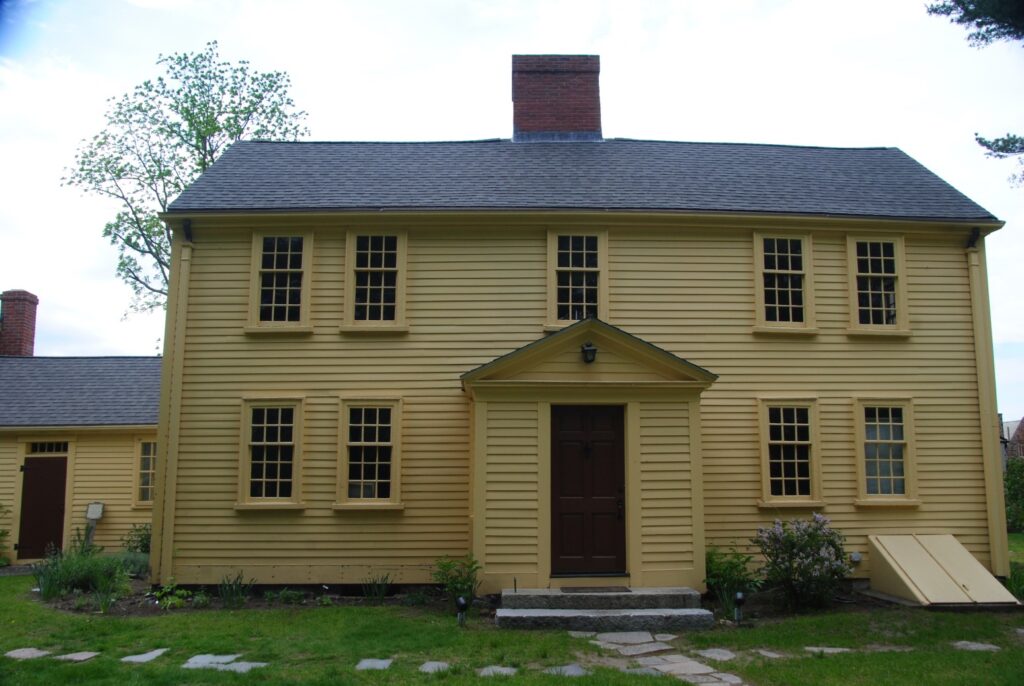
Sometimes overlooked in the retelling of events that occurred on April 19, 1775, is its cornerstone: “we were all English.” The fire ignited on Lexington Green, fueled at Concord’s North Bridge, and stoked throughout the day along the Battle Road was an English fight, pitting soldiers against citizens, brothers against brothers, countrymen against countrymen.
If accounts are accurate, about half the colonials and more than half of the soldiers who died on April 19 lost their lives in the town of Menotomy (present-day Arlington) where the fighting was so intense it has been described as “street to street, house to house, room to room.” One particularly tragic scene played out at the home of Jason Russell, a relatively prosperous farmer who had built the structure 35 years earlier. Having sent his family on to safety, Russell remained on the property, reportedly saying, “An Englishman’s house is his castle.” Old, lame, and slow, Russell was outside when the bloodiest fighting of the day erupted within sight. Offering shelter to colonials under heavy fire, Russell was shot twice while attempting to reach his own front door, then stabbed eleven times with bayonets. Along with others who died in and around the house, Russell was buried in a common grave without a coffin. The house, riddled with bullet holes, of which some remain visible today, passed to surviving family members.
Today, still standing as witness to those fatal, fateful events, the Russell house is home to the Arlington Historical Society, which offers tours of the property to individuals and groups, as well as a yearly lecture series, education, and outreach programs. A Freedom’s Way National Heritage Area treasure, the Jason Russell House & Smith Museum is a place worth exploring.
Written by Neil Lynch, Minute Man National Park Ranger and Community Ambassador for the Friends of Minute Man National Park and Freedom’s Way National Heritage Area.